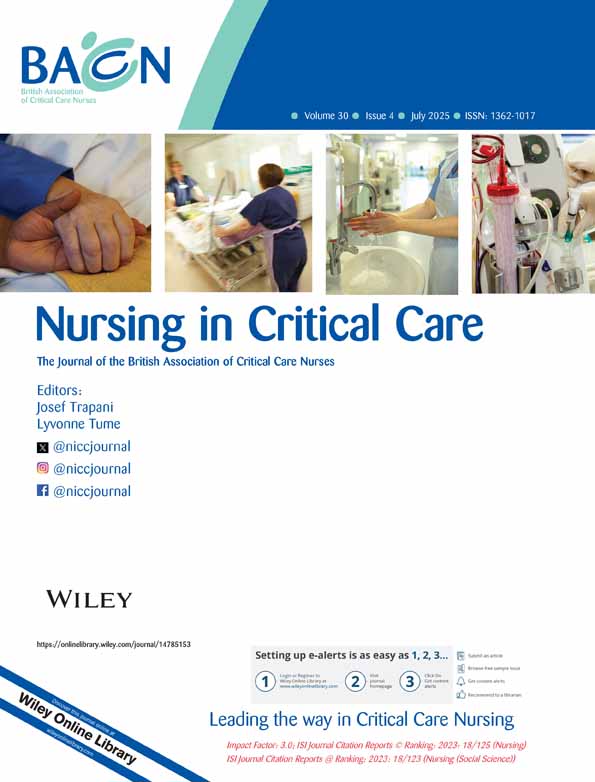Research Topics and Trends of Clinical Decision Support Systems in Intensive Care Units: A Bibliometric Analysis
Funding: This work was supported by National Natural Science Foundation of China, NSFC72304196.
ABSTRACT
Background
Hospital administrators apply information technology to improve healthcare quality; however, a comprehensive bibliometric analysis remains limited.
Aim
To explore the research topic, key contributors and development trends of clinical decision support systems (CDSS) in intensive care units (ICUs).
Study Design
Between January 1, 2014, and December 31, 2024, a bibliometric analysis was undertaken. CiteSpace software was used to conduct a visual analysis of literature retrieved from the Web of Science Core Collection database. Publishing countries, institutions, authors, cited journals and keywords were reported.
Results
A total of 817 articles were included in the final analysis. The annual publication volume showed an overall upward trend. The United States was the country with the highest number of publications (338 articles, 41.37%), and the University of Pittsburgh was the most prolific institution (29 articles, 3.55%). Herasevich, Vitaly from Mayo Clinic, Dept Anesthesiol, was the most prolific author (8 articles, 0.98%). Critical Care Medicine was the most cited journal (n = 421). Research hotspots primarily focused on the integration of CDSS with clinical practice, intelligent decision support-driven precision ICU care and the effectiveness of CDSS in managing ICU patients. Research trends centred on prediction, respiratory distress syndrome and artificial intelligence.
Conclusions
This study highlights key research areas in CDSS applications in ICUs, focusing on clinical integration, precision care and patient management, offering insights for improving healthcare quality.
Relevance to Clinical Practice
The findings from this bibliometric analysis can assist ICU nurses in advancing research on integrating CDSS into ICU practices, developing intelligent decision support tools and addressing gaps in precision care, prediction models and AI-driven solutions to enhance patient outcomes and optimise critical care management.
Conflicts of Interest
The authors declare no conflicts of interest.
Open Research
Data Availability Statement
The data that support the findings of this study are available on request from the corresponding author. The data are not publicly available due to privacy or ethical restrictions.




